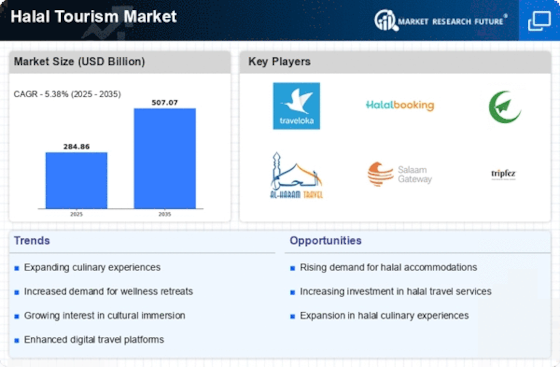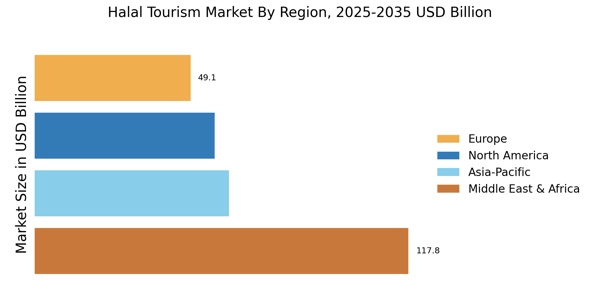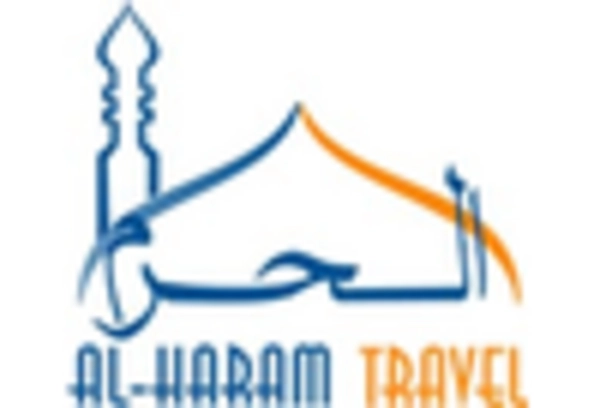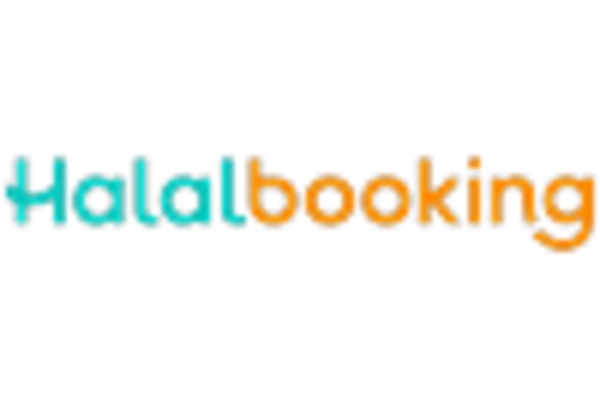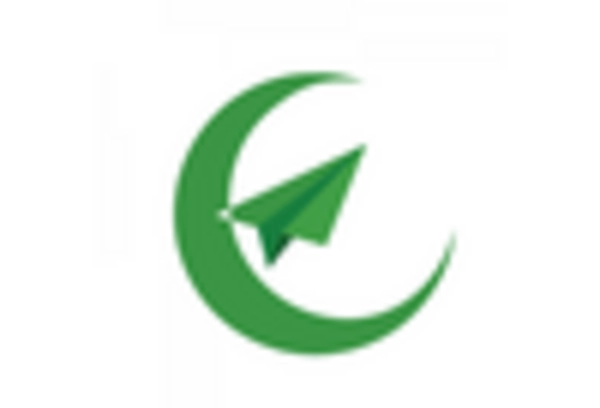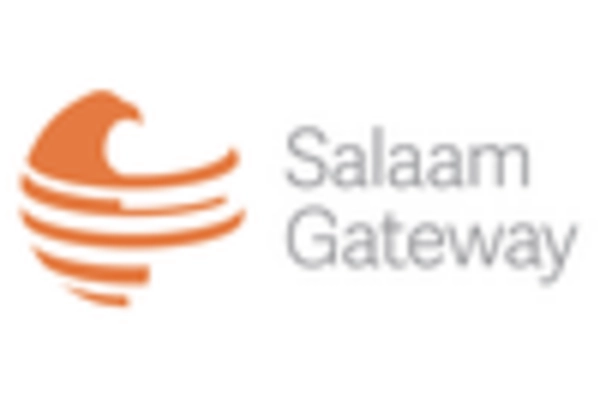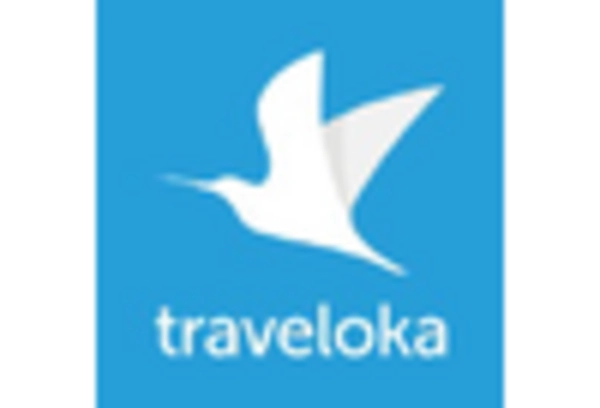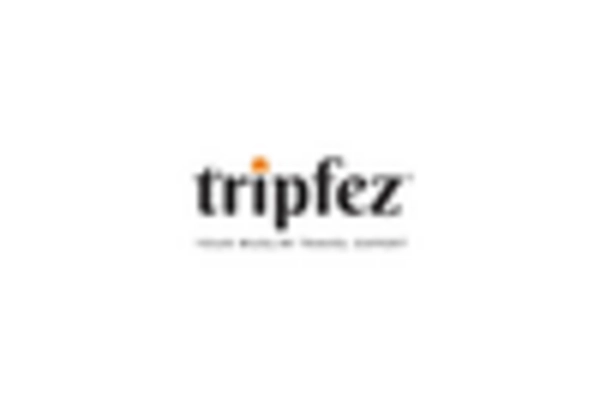Growing Muslim Population
The Halal Tourism Market is experiencing growth driven by the increasing Muslim population worldwide. As of 2025, it is estimated that there are over 1.9 billion Muslims globally, representing nearly 25% of the total population. This demographic shift is influencing travel preferences, with a notable rise in demand for Halal-friendly services and accommodations. Destinations that cater to the specific needs of Muslim travelers, such as prayer facilities and Halal dining options, are likely to see increased visitation. The Halal Tourism Market is thus positioned to benefit from this expanding consumer base, as more countries recognize the economic potential of attracting Muslim tourists.
Government Support and Initiatives
Government support plays a crucial role in the development of the Halal Tourism Market. Many countries are recognizing the economic benefits of attracting Muslim tourists and are implementing initiatives to promote Halal tourism. This includes investments in infrastructure, marketing campaigns, and the establishment of Halal certification bodies. For instance, countries like Malaysia and Indonesia have made significant strides in positioning themselves as Halal tourism hubs. Such government initiatives not only enhance the visibility of Halal offerings but also create a conducive environment for businesses to thrive within the Halal Tourism Market. This support is likely to stimulate further growth and innovation.
Cultural Exchange and Understanding
Cultural exchange is becoming increasingly important in the Halal Tourism Market. As more travelers seek authentic experiences, there is a growing interest in understanding the cultural practices and traditions of Muslim communities. This trend is fostering a greater appreciation for Halal tourism, as destinations that promote cultural understanding are likely to attract more visitors. Events, festivals, and community-based tourism initiatives that highlight Islamic culture can enhance the appeal of Halal offerings. By facilitating cultural exchange, the Halal Tourism Market not only enriches the travel experience but also promotes tolerance and understanding among diverse populations.
Rising Awareness of Halal Standards
There is a growing awareness of Halal standards among consumers, which is significantly impacting the Halal Tourism Market. As travelers become more informed about what constitutes Halal practices, they are increasingly seeking destinations that adhere to these standards. This trend is not limited to food but extends to accommodations, entertainment, and overall travel experiences. The Halal Tourism Market is responding by providing comprehensive information and certifications that assure travelers of compliance with Halal requirements. This heightened awareness is likely to drive more Muslim travelers to destinations that prioritize Halal offerings, thereby enhancing market growth.
Technological Advancements in Travel Services
Technological advancements are reshaping the Halal Tourism Market by enhancing the travel experience for Muslim tourists. The rise of mobile applications and online platforms dedicated to Halal travel services is making it easier for travelers to find suitable accommodations, restaurants, and attractions. These technologies often include features such as user reviews, Halal certification details, and location-based services. As more travelers utilize these digital tools, the Halal Tourism Market is likely to see increased engagement and satisfaction among its clientele. This trend suggests a shift towards a more personalized and efficient travel experience, catering specifically to the needs of Muslim travelers.
.png)

